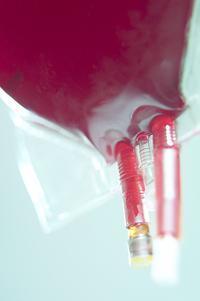Doping ring busted in Andorra
42 cyclists among clientele

A joint operation between the Mossos, the Civil Guard and police in Andorra has uncovered a doping ring which involves some 60 professional athletes. A new report on Cadena Sur states that 42 of the clients of an internet pharmacy in Encamp are or were professional cyclists.
Police tracked 536 sales of performance enhancing products over the past year, but investigators say the pharmacy was operating for the past six years.
Also listed amongst the clientele were professional multisport athletes, bodybuilders, a motorcycle racer and kayaker.
The report named several professional cyclists as clients: Ángel Gómez Gómez (ex-Saunier Duval/Fuji Servetto), Footon Servetto rider Enrique Mata Cabello, Adolfo Garcia Quesada, a former professional with Kelme who was banned for two years for testing positive for human chorionic gonadotropin in 2006 and Vicente Ballester Martínez, also retired. Also named are under-23 riders Javier Sánchez Cidoncha, Narcís Sallent Sanglas and Kevin Kohlvelter, and ex-pro Isidro Cerrato López,
Current riders include Spanish track cyclists Carlos Herrero Nadal and Alfredo Moreno Cano, Guillermo Lana Baquedano of Caja Rural and Frenchman Guillaume Pont (SP Tableware).
Another 30 riders took the drugs to help boost their performances in amateur events such as gran fondos.
Drugs sold include the blood booster Erythropoeitin (EPO), steroids and other banned substances, but named specifically was Solcoseryl, an extract of calf blood which is said to help increase oxygen consumption in hypoxic conditions as well as help heal damaged tissues.
Get The Leadout Newsletter
The latest race content, interviews, features, reviews and expert buying guides, direct to your inbox!
The chief investigator, Jordi Domènech, told Cadena Sur that they limited their surveillance of the transactions to those involving performance enhancing drugs, otherwise they would have uncovered a greater number of clients.
Athletes would order drugs on a section of the website, and then products were smuggled into nearby Spain to towns like Seu d'Urgell for shipping. There was also a distribution point in Jaca, where drugs would come directly from European laboratories.
The people running the pharmacy, a man and his wife, as well as three others who operated a store in Barcelona which sold DHEA, face sentences of 6 months to two years in prison for trafficking drugs in Spain.